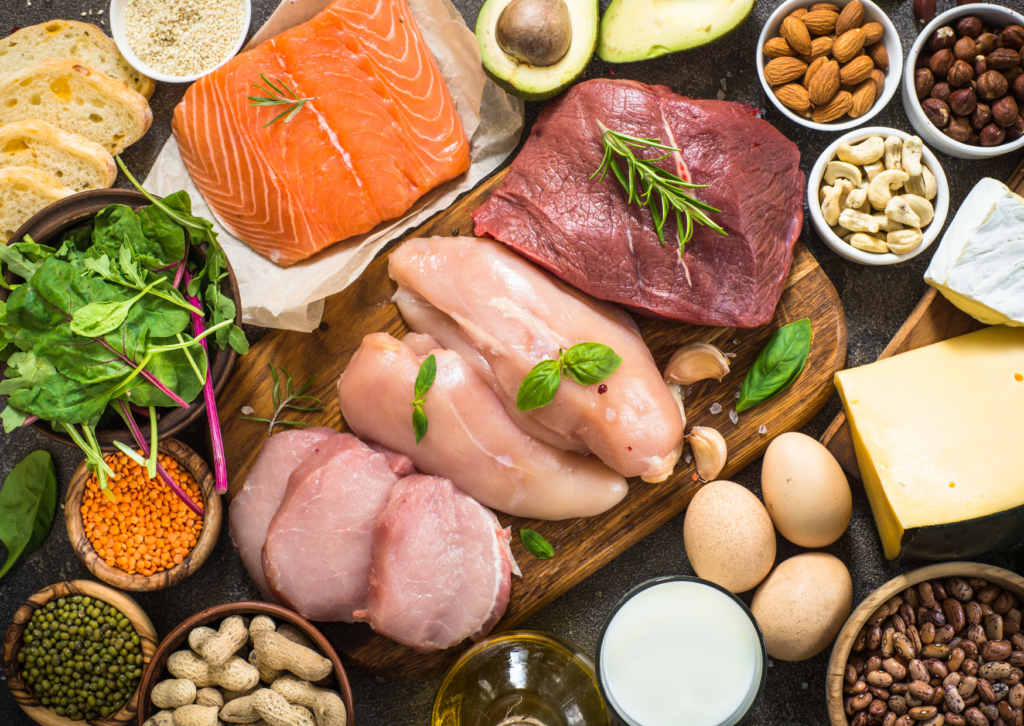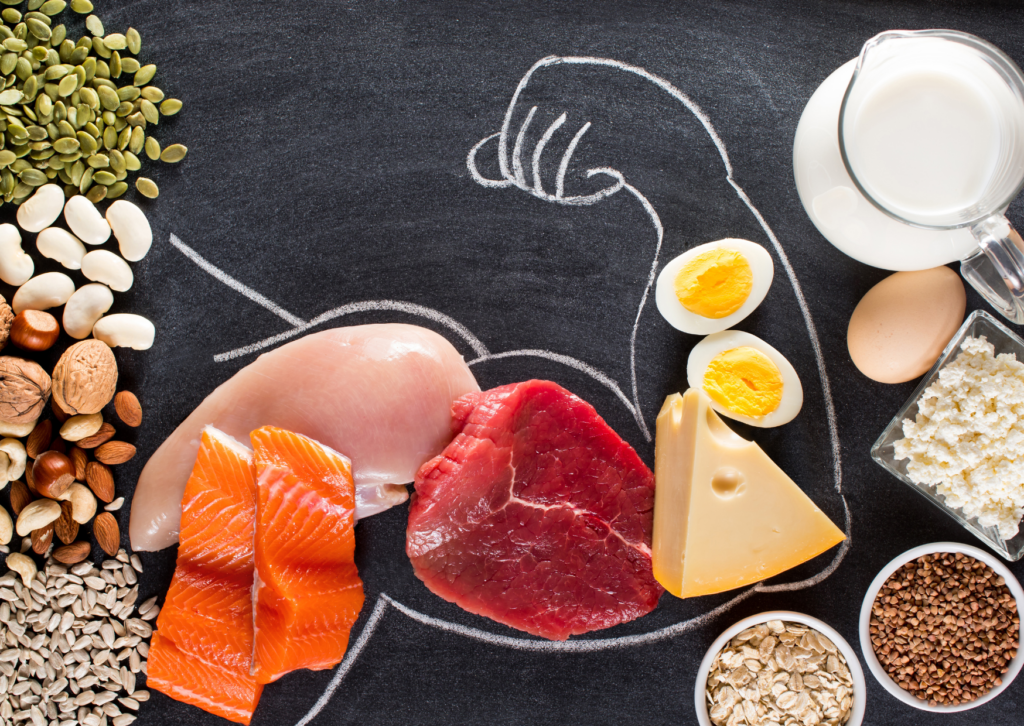Protein Digestion and Absorption in the Gut
Proteins are essential macronutrients that play crucial roles in our body, from building and repairing tissues to producing enzymes and hormones. Nonetheless, have you ever wondered how your body processes the proteins you consume? Well, let’s dive into the fascinating journey of protein digestion and absorption in the gut.

The Journey Begins: Protein Digestion
Protein digestion starts the moment you take a bite of your protein-rich meal. This process can be broken down into several key stages:
1. Mouth: The Initial Breakdown
- Chewing: The mechanical action of chewing breaks down large pieces of food into smaller ones, increasing the surface area for enzymes to act upon.
- Saliva: Saliva moistens the food, forming a bolus. Nevertheless, it contains minimal proteolytic enzymes. As a result, little protein digestion occurs here. Therefore, most protein digestion takes place later in the digestive process.
2. Stomach: The Acidic Powerhouse
- Gastric Juices: Upon reaching the stomach, the food is mixed with gastric juices, which contain hydrochloric acid (HCl) and the enzyme pepsin.
- HCl: The acidic environment denatures the protein structure, unraveling it to expose peptide bonds.
- Pepsin: Pepsin cleaves these peptide bonds, breaking the proteins into smaller peptides and amino acids.
3. Small Intestine: The Main Digestive Event
- Pancreatic Enzymes: The partially digested proteins move into the small intestine. There, pancreatic enzymes like trypsin, chymotrypsin, and carboxypeptidase encounter them. Subsequently, these enzymes further break down the peptides into smaller peptides and free amino acids.
- Brush Border Enzymes: The cells lining the small intestine produce additional enzymes, such as aminopeptidases and dipeptidases; consequently, these enzymes complete the breakdown process into single amino acids.
Absorption: The Journey into the Bloodstream
Once proteins are broken down into amino acids, they are ready for absorption. This process occurs primarily in the small intestine and involves several steps:
1. Transport Across the Intestinal Lining
- Active Transport: Active transport mechanisms, which necessitate energy (ATP), facilitate the absorption of amino acids through the intestinal lining.Subsequently, specialized carrier proteins transport the amino acids into the enterocytes (intestinal cells).
- Peptide Transporters: Specific peptide transporters transport some dipeptides and tripeptides. Once these peptides enter the enterocytes, they undergo subsequent breakdown into amino acids.
2. Release into the Bloodstream
- Basolateral Membrane: After absorption, amino acids pass through the basolateral membrane of the enterocytes into the bloodstream.
- Portal Circulation: The portal vein carries amino acids into the liver, where they undergo transportation for various metabolic processes or distribution to other tissues in the body.
The Significance of Efficient Protein Digestion and Absorption

Efficient protein digestion and absorption are vital for maintaining health and well-being. Here’s why:
- Muscle Repair and Growth: Amino acids are the building blocks of muscle tissue, essential for repair and growth, especially after exercise.
- Enzyme Production: Many enzymes, that catalyze biochemical reactions, are proteins. Therefore, adequate protein digestion is crucial. Consequently, it ensures a steady supply of amino acids for enzyme synthesis. In addition, this supports various bodily functions that rely on these enzymes.
- Hormone Synthesis: Proteins compose hormones like insulin and glucagon, which regulate various physiological processes.
- Immune Function: Antibodies, crucial for immune defense, are proteins. Proper protein absorption supports a robust immune system.
Factors Affecting Protein Digestion and Absorption
Several factors can influence the efficiency of protein digestion and absorption:
- Age and Health Status: Digestive efficiency can decrease with age or due to certain health conditions; for example, Crohn’s disease or celiac disease.
- Protein Source: Different proteins digest at varying rates. For example, whey protein digests faster than casein.
- Cooking Methods: Cooking can denature proteins, making them easier to digest. However, overcooking can make proteins harder to digest.
Understanding how we digest and absorb proteins helps us appreciate the complex journey our food undergoes to nourish our bodies. Moreover, by choosing high-quality protein sources and staying mindful of factors that affect digestion, we can actively support our gut health and overall well-being.
So, the next time you enjoy a protein-packed meal, you’ll know exactly how your body transforms those proteins into the vital components that keep you strong and healthy!
Watch our Free masterclass diving into our 3 Pillars of Gut health that you can implement today! https://chelseahainescoaching.ck.page/masterclass23-replay
June 4, 2024
Leave a Reply Cancel reply
Podcast
Have you tuned in?
Let's Start Health; a podcast willing to start the awkward, vulnerable, and even hard conversations needed in order to break through stigmas of mental and physical health, as well as educate and inspire those on a journey to healing. Hosted by Chelsea Haines.
Be the first to comment